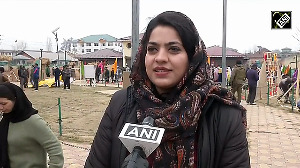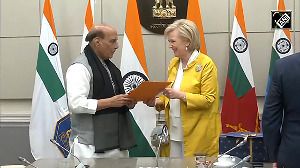Reserve Bank of India has liberalised norms regarding setting up of new branches by Indian banks abroad and also for foreign banks willing to open branches in India.
The RBI announced on Monday that applications from Indian banks for opening representative offices, branches or subsidiaries outside India would be considered based on a liberalised policy and a simplified procedure for expeditious disposal.
A similar approach would be adopted towards foreign banks wanting to increase their branch presence in India. However, the focus will be on rural India.
Unveiling the policy for allowing foreign banks to set up subsidiaries in India, RBI said these banks will not be given unlimited branch licences even if they adopt the subsidiary route.
This means that the liberalised branch opening concept will be applicable to rural areas.
In other words, foreign banks will be allowed deeper access to untapped areas, while their entry into urban India would be restricted.
The simplification comes at a time when Indian banks, like State Bank of India, Bank of India and Bank of Baroda have ambitious expansion and acquisition plans overseas.
While examining the applications made by Indian banks, the RBI would consider the supervisory comfort, the banks' sustainable financial and competitive strength and robustness of their systems for 'know your customer/anti money laundering.'
Likewise, RBI will examine applications from Indian banks for acquisition of units outside India, keeping in mind overseas regulatory approval, due diligence on investee bank and degree of management control.
Currently, permission for opening of branches by foreign banks in India is guided by commitments to the World Trade Organisation at the rate of 12 branches a year. In practice, however, a higher number is permitted on merits.
It is now proposed to adopt a more liberalised policy in this regard for branches which plan to set up shop in unbanked areas, said the release from the central bank.
Applications from Indian and foreign banks would henceforth be processed on a continuous basis and in a time-bound manner, as per a simplified procedure, said the release.





 © 2025
© 2025